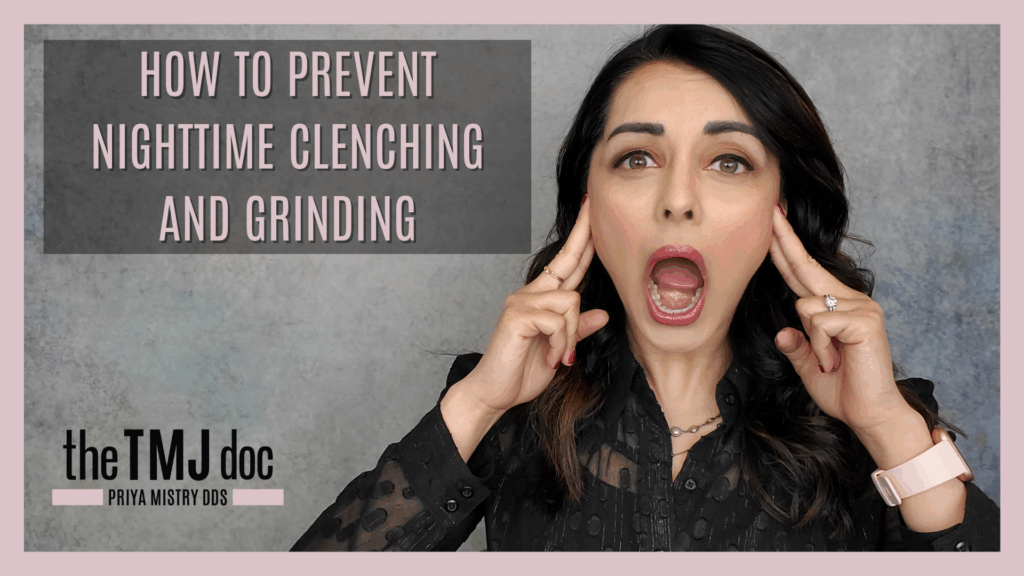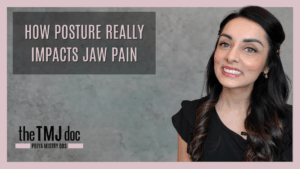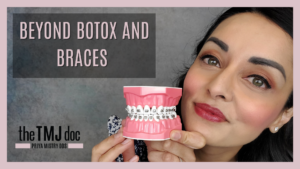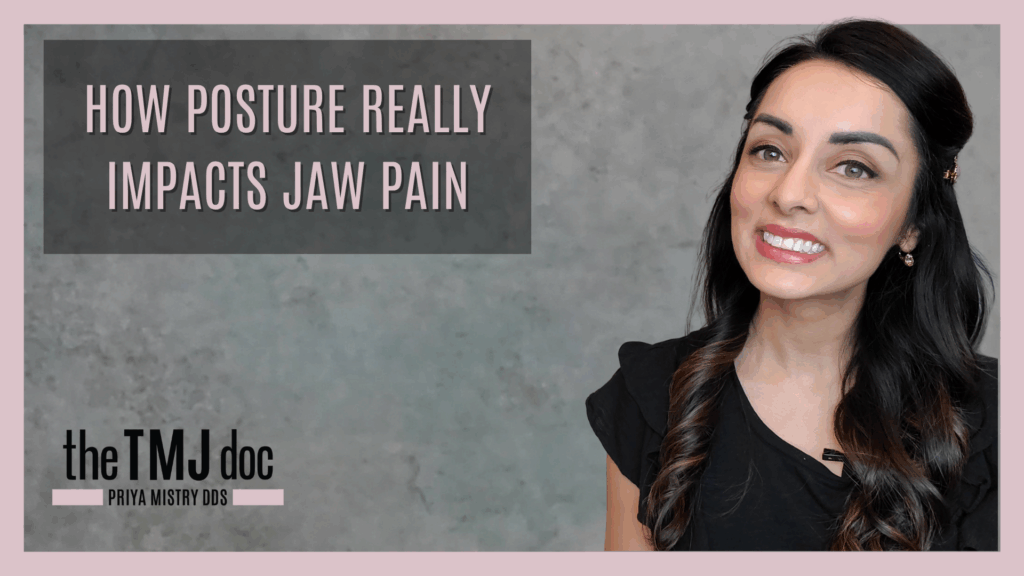Many people wake up with sore jaws, tight facial muscles, or morning headaches without realizing they’re grinding or clenching their teeth while they sleep. This unconscious habit, known as nocturnal bruxism, can quietly wear down teeth, strain the jaw joints, and cause lasting damage to the temporomandibular joint (TMJ).
Dr. Priya Mistry, The TMJ Doc, often explains that grinding at night isn’t just a “bad habit,” it’s usually a symptom of a deeper imbalance involving muscles, the bite, airway, or stress patterns. Understanding the root cause is key to breaking the cycle and protecting your smile.
Why Nighttime Bruxism Happens
Muscle & Bite Imbalance
When your bite is off or the jaw joints aren’t aligned properly, the chewing muscles work overtime to find balance. This can trigger nighttime clenching as your body subconsciously tries to stabilize the bite.
Airway & Breathing Problems
People who snore, struggle to breathe through the nose, or have mild sleep apnea may clench as the body’s way of keeping the airway open. The jaw muscles tense to reposition the lower jaw forward, creating a temporary but exhausting fix.
Stress & Nervous-System Overload
Stress is one of the most common triggers for bruxism. Even if you feel calm during the day, the body can release that built-up tension at night through muscle activity, especially in the jaw, neck, and shoulders.
Medications & Sleep Disturbances
Certain medications, like some antidepressants, can increase clenching tendencies. Poor sleep hygiene, caffeine intake late in the day, and alcohol can also heighten nighttime grinding.
Small Changes with Big Impact
While medical evaluation is important, these daily habits can help reduce strain and nighttime tension:
- Create a calm bedtime routine. Limit screens and bright light for 30–60 minutes before bed.
- Skip caffeine and alcohol late in the day. Both can disrupt deep sleep and trigger clenching.
- Check your daytime posture. The more relaxed your jaw and shoulders are during the day, the less tension carries into the night.
- Practice jaw awareness. Remember The TMJ Doc’s favorite cue: “Lips together, teeth apart, tongue on the roof of the mouth.”
- Try gentle breathing before bed. Slow nasal breathing lowers stress and activates your parasympathetic (“rest and digest”) system.
Even small shifts in daily rhythm can help your nervous system stay out of “fight or flight” mode at night.
Treatment Options The TMJ Doc May Recommend
For patients who clench or grind regularly, Dr. Priya Mistry takes a comprehensive approach to protect both the teeth and jaw joints. Depending on your evaluation, treatment may include:
- Custom TMJ appliance therapy: To relieve pressure on the joints and allow muscles to rest.
- Disclusion Time Reduction (DTR): A precision adjustment that refines bite timing and muscle activation.
- Airway and sleep evaluation: Identifying and treating nasal or breathing issues that drive bruxism.
- Stress-reduction strategies: Targeted relaxation exercises, physical therapy, or even SPG block therapy for overactive nerves.
- Postural or bodywork referrals: Addressing neck, shoulder, and core imbalance to reduce tension on the jaw.
The TMJ Doc’s goal is always to identify and correct why the body is clenching, not just to mask the symptoms.
When to Seek Help
If you’re waking up with jaw soreness, headaches, or notice worn-down teeth, it’s time to get evaluated.
You may also experience:
- Clicking or popping when opening and closing
- Tightness in the face or temples
- Ear pressure or ringing
- Limited jaw opening or fatigue when chewing
These are signs that the TMJ and surrounding muscles need professional attention.
The Bottom Line
Grinding or clenching at night is your body’s way of telling you something’s out of balance, whether it’s muscle tension, airway restriction, or stress. Addressing the root cause helps not only your jaw but your overall health and sleep quality.
Dr. Priya Mistry, The TMJ Doc, provides a personalized, full-body approach to help patients stop nighttime bruxism and heal from chronic jaw pain.
It’s time to give your jaw the rest it deserves.






